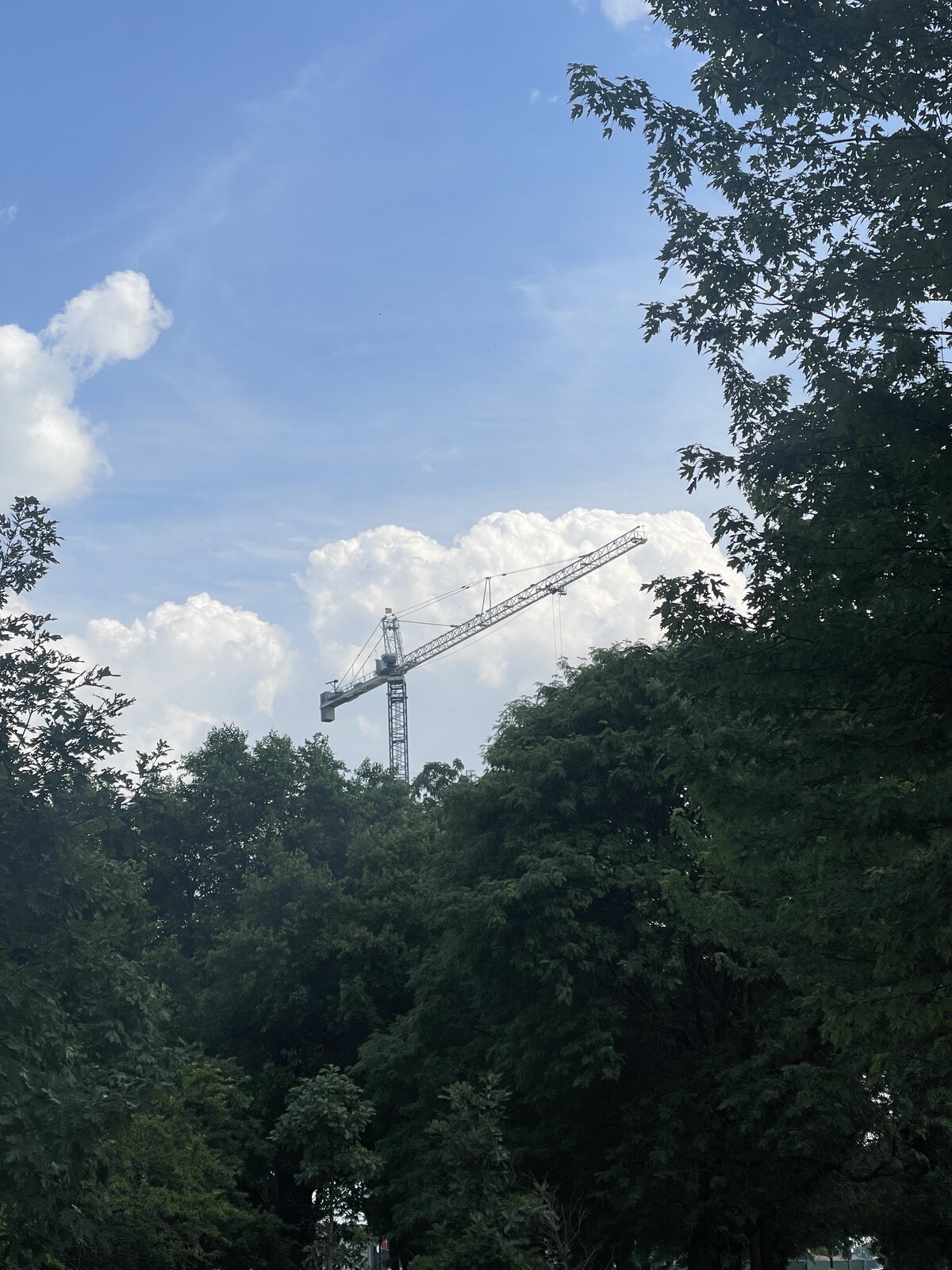Outside the Window
About a week ago, I took a look outside my bedroom window, aimlessly, and saw a hummingbird. It hovered, then zipped, toward the branches of a nearby tree. For a few seconds I wasn’t sure what I was seeing–if I had even seen a bird at all. Then I saw that the bird was still there, and that it was sitting in a nest it had built on a thin descending tree branch, a few feet from the window.


I’ve been checking on it ever since: looking at it through binoculars, photographing it, watching. If the nest were any closer to the building, I wonder if my presence would bother it. Sometimes I think that the bird sees me, is staring back trying to figure out what I am. Mostly–uncharacteristically, for a bird that is always on the move–it sits.
As I watch this creature stay still, waiting for something to happen1, I keep coming back to life and the acceptance of risk. The wind blows, the tree bends. The branch bounces and sways, tipping the bird and its nest. It could all fall–sometimes these nests do fall–at any time. This bird survives by being fast and nimble in the air, but it has given all of that up. The nest is camouflaged, but it is out in the open. I have seen hawks perch on this tree. Other hummingbirds approach her territory.
The nest could be a small risk, an average risk, compared to the 500 mile migration it will soon undertake, across the Gulf of Mexico.
Read more →
 wild ginger, a slow grower at about 6 inches per year, spreading a hundred or more feet downhill
wild ginger, a slow grower at about 6 inches per year, spreading a hundred or more feet downhill Huge stands of Ladyfern (Athyrium filix-femina) wherever the tree cover was heavy. In any window where a tree fell and the canopy broke open, the ferns were burned away
Huge stands of Ladyfern (Athyrium filix-femina) wherever the tree cover was heavy. In any window where a tree fell and the canopy broke open, the ferns were burned away Something in the Osmorhiza genus, likely aniseroot. My eye was captured by the segmented, almost fern-like lobes of leaves on this plant.
Something in the Osmorhiza genus, likely aniseroot. My eye was captured by the segmented, almost fern-like lobes of leaves on this plant.
 Image credit
Image credit